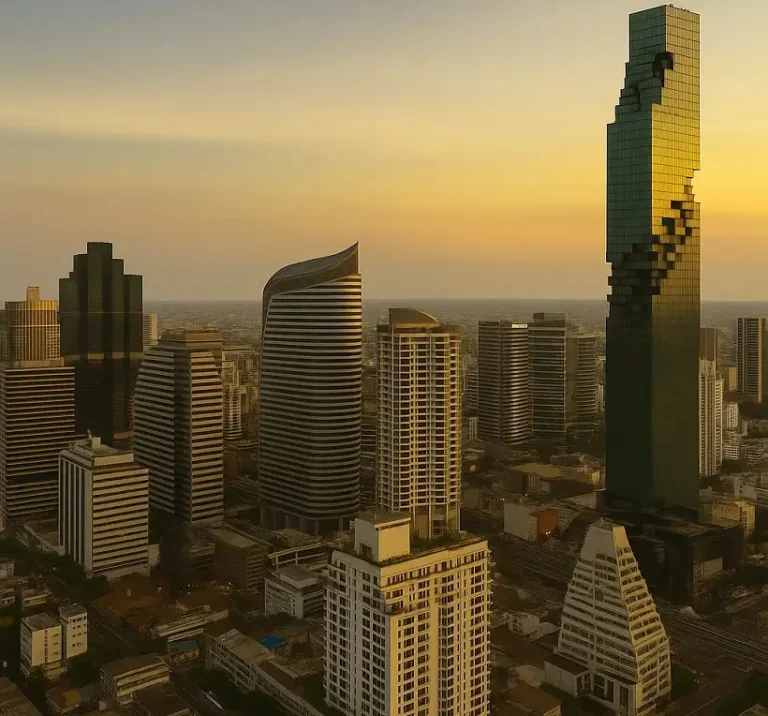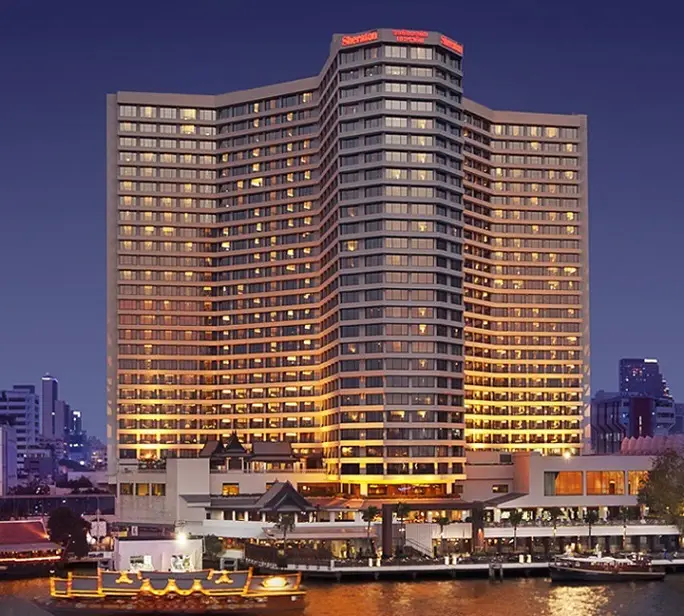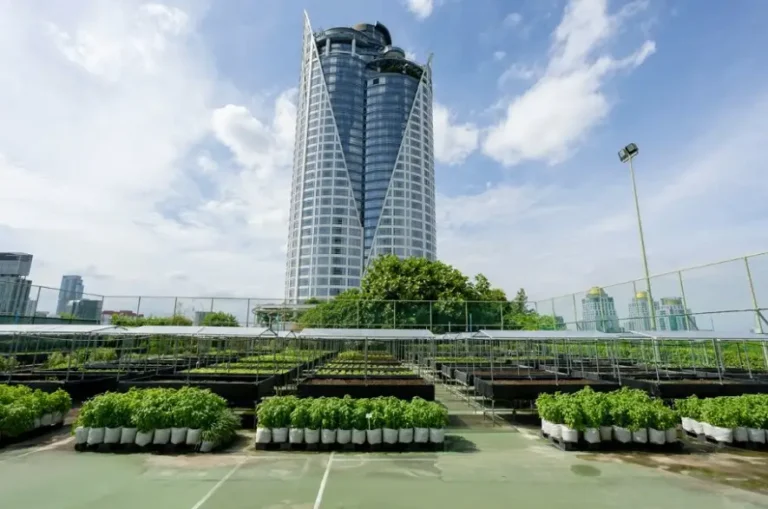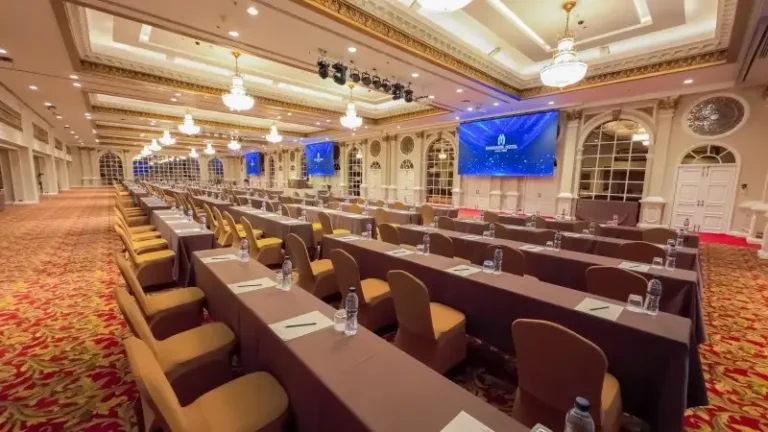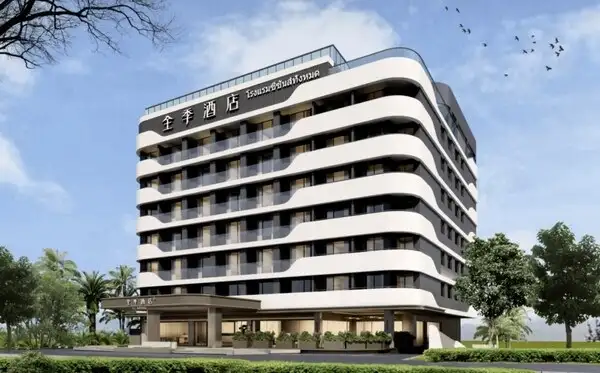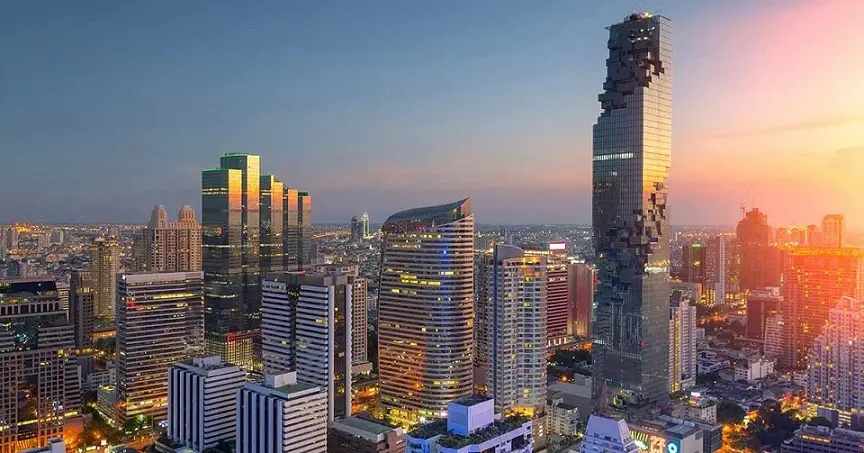
Bangkok Hotel News: Thailand’s Hospitality Rebound Is Real but Not Without Surprises
After years of unprecedented disruptions from the COVID-19 pandemic and shifting global travel patterns, Thailand’s hotel market is making a striking comeback in 2025. Signs of resilience are evident across the country—from bustling lobbies in Bangkok’s five-star hotels to new luxury resorts breaking ground in Koh Samui and Chiang Mai. The hospitality industry in Thailand, valued at around USD 1.5 billion this year, is forecasted to grow at a healthy compound annual growth rate (CAGR) of 5.67%, reaching nearly USD 2 billion by 2030.

Image Credit: JLL Thailand
Driving this resurgence is a multifaceted recovery strategy that includes aggressive government-backed tourism initiatives, renewed investor interest, and surging international arrivals. This Bangkok Hotel News report points to a surge in transaction volumes and higher asset valuations as key signs of industry optimism. Analysts say 2025 may become a record-breaking year in terms of deal size and portfolio expansion, especially in key markets like Bangkok, Phuket, Pattaya, and Hua Hin.
A Tourism Engine Firing on All Cylinders
Tourism remains one of the most crucial pillars of Thailand’s economy, and the government is doubling down on policies to reestablish the country as a leading global destination. The Tourism Authority of Thailand (TAT) has set an ambitious target of 40 million foreign visitors in 2025, along with over 220 million domestic trips. These goals are part of the “Thailand Grand Tourism Year” campaign, which combines aggressive international marketing with domestic tourism promotions.
Notably, the easing of visa restrictions for Chinese, Indian, Russian, and European travelers, combined with the rollout of a streamlined e-visa system, has started to bear fruit. Tourism inflows from mainland China alone are expected to surpass pre-pandemic levels by mid-2025. Moreover, high-spending travelers from Europe and the Middle East are showing a strong appetite for wellness retreats, beachfront villas, and bespoke cultural experiences across Thailand’s provinces.
To accommodate this demand, a host of new infrastructure projects are underway. The Eastern Economic Corridor (EEC) project includes high-speed train connectivity between Bangkok, Pattaya, and U-Tapao International Airport, while Suvarnabhumi Airport’s expansion is slated for completion by late 2025. These improvements are expected to ease congestion and encourage more regional travel, particularly from ASEAN countries.
A Surge in Investment and Hotel Pipeline Growth
Foreign direct investment in Thailand’s hospitality sector is on an upward trajectory. According to industry insights, more than 120 new hotel developments are slated to open between 2023 and 2026, with Bangkok capturing nearly 47% of this activity. The capital city’s appeal to investors stems from its strong mix of business and leisure demand, coupled with rising average daily rates (ADRs) and occupancy levels rebounding above 72%.
In 2024, the Hyatt Regency Bangkok Sukhumvit was acquired in Thailand’s largest-ever single-asset hotel transaction, signaling growing investor confidence. That trend is continuing into 2025. The average transaction size this year has already hit THB 1.8 billion (approximately USD 53.2 million), a sharp jump from the 10-year average of THB 1 billion.
Private equity funds, REITs (Real Estate Investment Trusts), and institutional investors are leading the charge. Thailand’s relatively favorable legal framework for foreign ownership—especially via leasehold structures—and government incentives such as BOI tax breaks have helped attract new capital. Markets like Phuket, Krabi, and Chiang Mai are drawing attention from boutique investors interested in mid-scale and lifestyle brands, while Bangkok remains the stronghold for ultra-luxury and business hotel developments.
A New Era of Sustainability and Smart Tech
Thailand’s hospitality sector is also aligning with global sustainability trends. As tourists grow more environmentally conscious, hotels are pivoting to eco-friendly practices—from energy-efficient designs to plastic-free operations and farm-to-table dining. Boutique resorts in Chiang Rai and Koh Tao are marketing themselves as carbon-neutral properties, while major international chains like Marriott, Accor, and InterContinental are rolling out Thailand-specific ESG programs.
On the tech front, digital transformation is transforming the guest experience. Leading hotels in Bangkok and Phuket are deploying AI-powered chatbots, smart room controls, and virtual concierge services. Contactless check-in and facial recognition are becoming the norm at upscale urban hotels, and mobile booking platforms integrated with local travel experiences are gaining traction.
This emphasis on digital convenience is particularly important as millennials and Gen Z travelers—who value frictionless service and personalization—begin to dominate the market. In addition, hotel operators are leveraging big data analytics to manage demand forecasting and tailor dynamic pricing strategies, enhancing both profitability and customer satisfaction.
Pop Culture Drives Bookings and Branding
In 2025, cultural exports and media exposure are playing a surprisingly powerful role in shaping tourism trends in Thailand. The third season of the HBO drama “The White Lotus,” filmed across scenic locations in Koh Samui and Bangkok, has sparked a sharp uptick in travel bookings tied to filming locations. This “set-jetting” phenomenon is real—and lucrative. Local luxury hotels have launched White Lotus-themed packages, complete with private chef dinners and villa stays.
Adding to the momentum is the casting of global superstar Lalisa Manobal (Blackpink’s Lisa) in the show, which has created a viral frenzy across Southeast Asia and among international K-pop fans. As a result, Koh Samui and Phuket are seeing spikes in interest from young travelers seeking to walk in the footsteps of their idols.
These trends are not only helping to boost short-term bookings but also allowing hotels to build brand value and attract new demographics. Forward-looking hotel operators are now partnering with production companies, influencers, and digital creators to keep Thailand at the forefront of tourism pop culture.
Challenges Ahead Even in a Bull Market
Despite the bright outlook, not everything is smooth sailing. Over-tourism remains a critical concern in hotspots like Bangkok, Chiang Mai, and the Phi Phi Islands. Environmental degradation, water scarcity, and cultural dilution are being flagged by both local communities and international NGOs.
Furthermore, the labor shortage in the hospitality industry has reached worrying levels. Many skilled workers left the industry during the pandemic, and staffing gaps have yet to be filled. Operators are having to offer higher wages, better working conditions, and enhanced career development paths to attract new talent.
Finally, Thailand still lacks a unified sustainability certification framework. While individual hotels may adopt green practices, the absence of national standards makes it difficult to measure and enforce ESG compliance. Industry experts are urging policymakers to establish clearer guidelines to ensure the country’s long-term tourism sustainability.
The Road Ahead for Thailand’s Hospitality Sector
Thailand’s hotel market in 2025 is defined by opportunity, transformation, and an undercurrent of risk. The country’s rich cultural assets, strategic location, and government-backed policies create a fertile ground for tourism-led economic growth. But staying competitive will require more than scenic beaches and cheap street food.
In the years to come, the winners in Thailand’s hotel industry will be those who invest in technology, embrace sustainability, and adapt their offerings to meet the changing preferences of global travelers. Midscale hotels must cater to digital nomads and remote workers with co-living amenities and flexible bookings. Luxury brands must reinvent the experience with authentic Thai storytelling, wellness immersion, and privacy-focused design.
Meanwhile, policymakers must collaborate with private stakeholders to address systemic issues—be it labor shortages, over-tourism, or environmental stress. Public-private partnerships, regional development beyond Bangkok, and regulatory reform will be crucial to extending Thailand’s hospitality boom beyond a short-lived rebound.
In the end, Thailand stands at a crossroads. It has the legacy, the location, and the local charm to become one of the world’s leading tourism hubs once again—but only if the industry evolves with intention and foresight.
References:
https://www.mordorintelligence.com/industry-reports/hospitality-industry-in-thailand
https://www.jll.co.th/en/trends-and-insights/research/thailand-hospitality-financing-guide-2025
https://www.intellifyglobal.com/thailand-tourism-industry-outlook-2025
https://www.cbre.com/insights/reports/thailand-real-estate-market-outlook-2025
https://skift.com/2025/05/11/thailands-hotel-market-in-2025-fewer-deals-bigger-bets
https://www.savarinluxprop.com/news/thaihotelindustry2025
https://www.travelandtourworld.com/news/article/thailands-tourism-industry-set-for-significant-growth-by-2035-here-is-what-you-need-to-know-before-you-plan/
https://www.theguardian.com/tv-and-radio/2025/feb/15/thailand-the-white-lotus-season-three-lisa
https://www.washingtonpost.com/travel/2025/02/22/thailand-white-lotus-tourism-koh-samui-four-seasons
For the latest on the Hotel Market in Thailand, keep on logging to Bangkok Hotel News.

